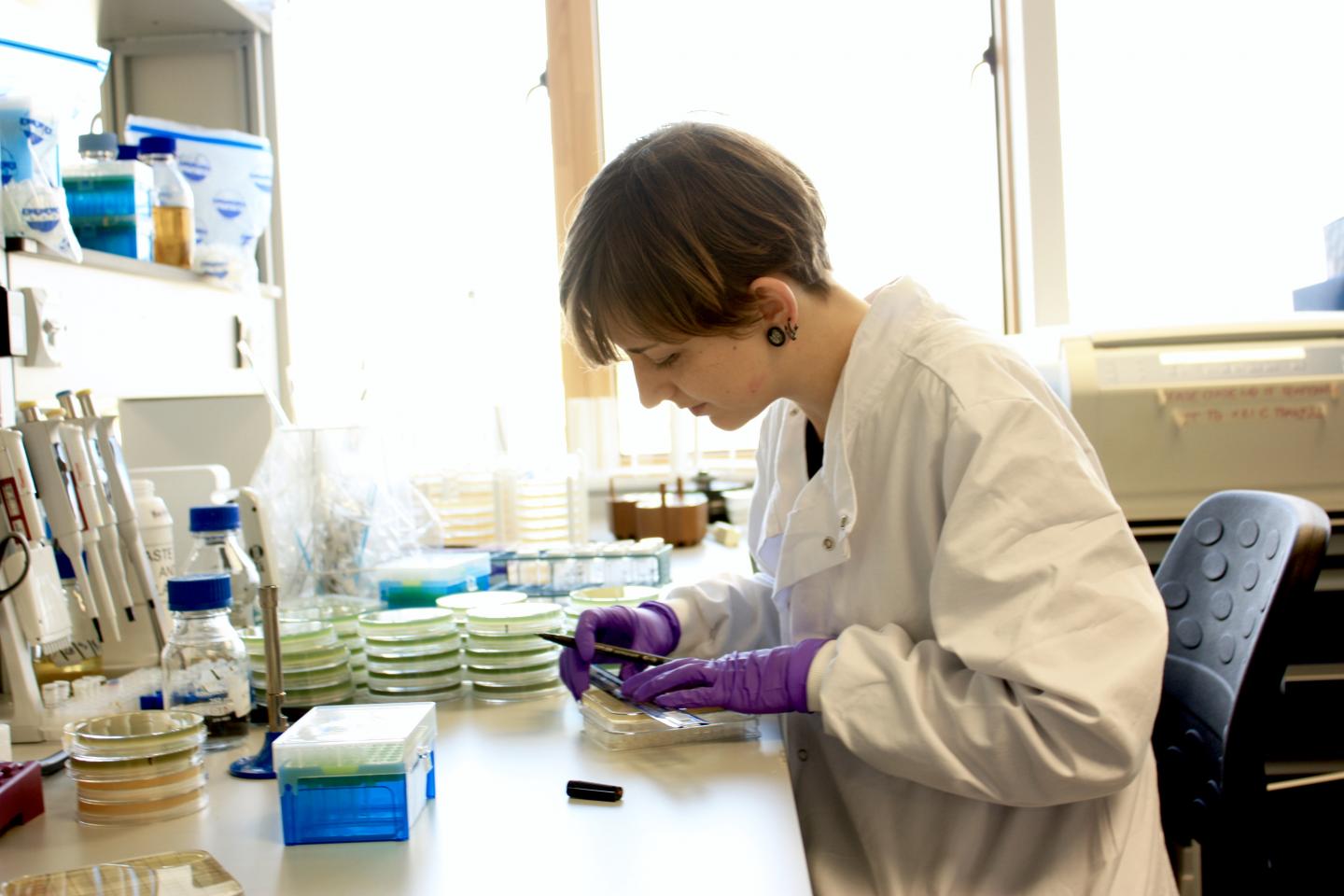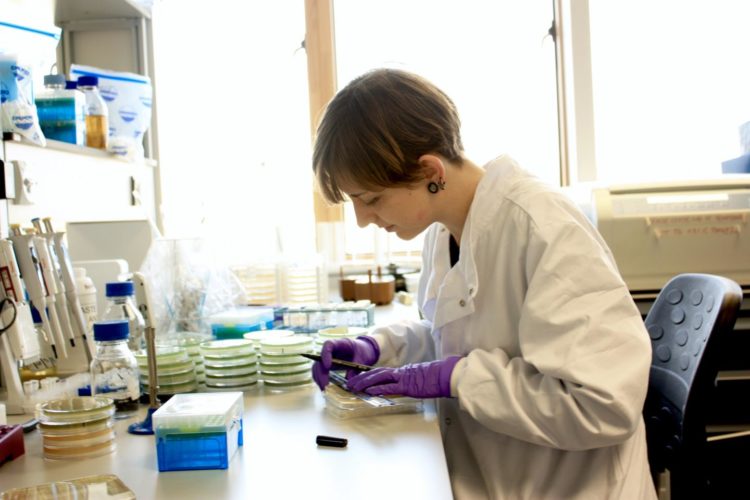
Credit: Ellinor O. Alseth
New findings from University of Exeter researchers reveal how bacterial immune systems can be harmful for their hosts and explain why they are not found in many bacteria.
CRISPR-Cas is an immune system that protects bacteria against infection by viruses (called phages).
The system works by stealing a small piece of viral DNA and using this to target and destroy matching sections of virus genome during a future infection.
Targeting by CRISPR-Cas breaks down the virus genome, meaning that new copies of the virus cannot be made.
Previously, the Westra and van Houte groups of the Environment and Sustainability Institute on the University’s Penryn Campus in Cornwall showed that CRISPR-Cas can provide excellent protection against “lytic” phages, that is phages that multiply inside the host cell and cause the bacterial cell to burst releasing more viral particles (10.1016/j.cub.2015.01.065, 10.1038/nature17436).
However, it is common for viruses to follow a “lysogenic” lifestyle, meaning they can integrate into the host genome and become dormant until a trigger (often associated with host stress, or signals from other phages) causes them to re-enter the lytic pathway.
Lead authors of the current study, Clare Rollie and Anne Chevallereau, both working in the Westra group, explain that: “Our new results show that the immune system was not able to eliminate lysogenic phages and often led to damaging autoimmunity for the host during phage infection.”
This type of autoimmunity was caused by the CRISPR-Cas system targeting viral DNA that had been incorporated into the host’s own genome, leading to host cell death and virus release.
They found that bacterial cells that had lost the CRISPR-Cas system from their genome avoided the damage caused by autoimmune targeting, survived and proliferated.
“Here, the absence of this key immune system was an advantage,” explain the authors.
They also highlight that “anti-CRISPR proteins, which are small inhibitors produced by the phage to counteract the host CRISPR-Cas immune response and had previously been thought to only benefit the phage that makes them, also provide protection for the host. In this scenario, disabling the host immune system blocks autoimmunity and prevents bacterial death.”
Bacterial autoimmunity is brought about by imperfectly matching “spacers” – sequences that guide the CRISPR-Cas system to viral DNA.
The authors showed that these imperfect matches to phages occur frequently in nature and so this autoimmune effect was likely to be a common consequence of possessing a CRISPR-Cas system.
Importantly, this may help to explain why CRISPR-Cas is only present in about 40% of bacterial genomes and is frequently gained and lost from closely related strains.
The research was carried out in collaboration with theoreticians from the University of Montpellier (France) and bioinformaticians from University of Otago (New Zealand).
University of Exeter researchers were funded by the European Research Council, NERC Independent Research Fellowship and a Marie Sk?odowska-Curie fellowship under the European Union’s Horizon 2020 research and innovation programme.
###
The paper, published in the journal Nature, is entitled: “Targeting of temperate phages drives loss of type I CRISPR-Cas systems.” (https:/
Media Contact
Alex Morrison
[email protected]
44-013-927-24828
Related Journal Article
http://dx.





